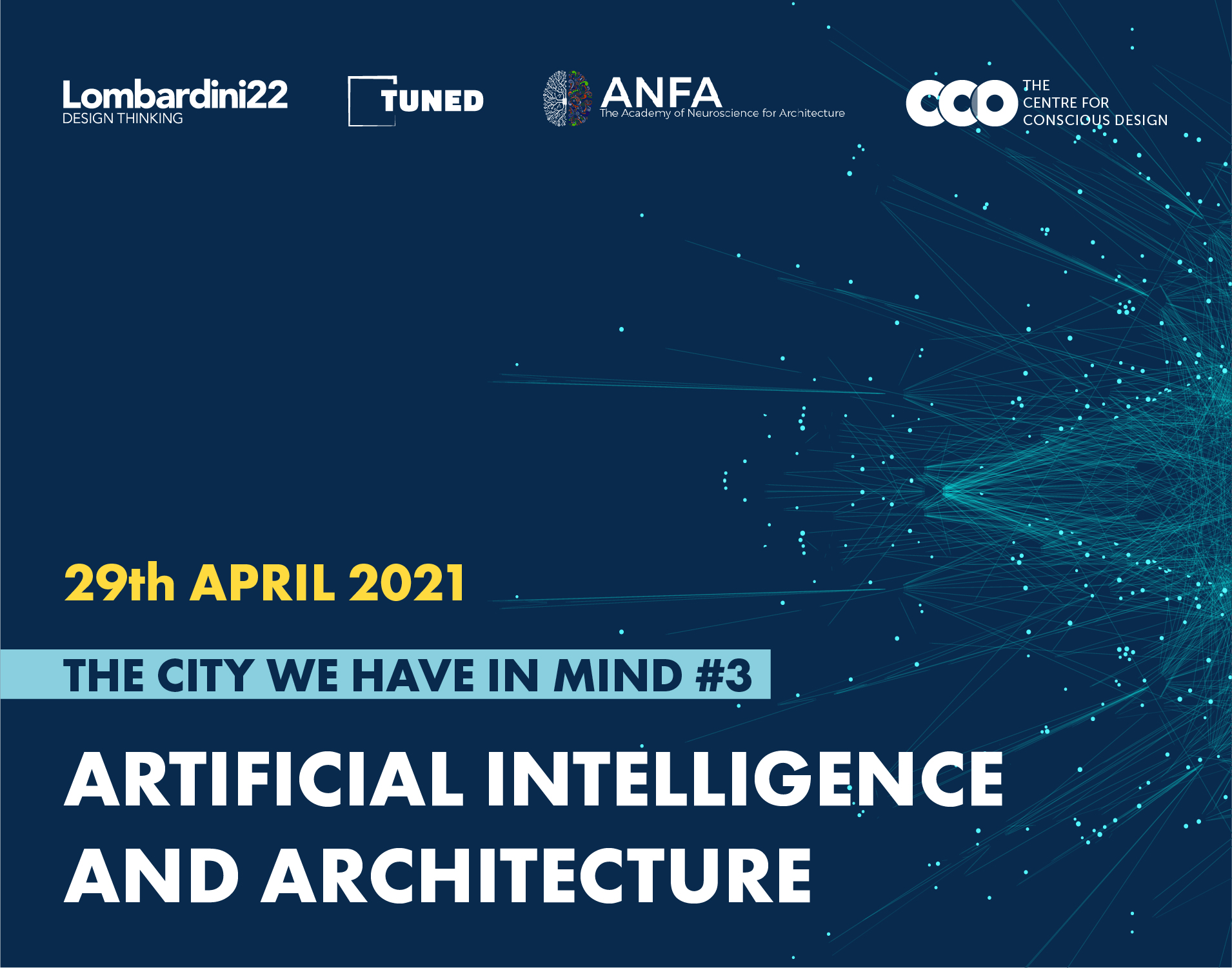April 29, 2021 – the third event of THE CITY WE HAVE IN MIND cycle
Artificial intelligence represents the new technological innovation of our times, but how does it influence humans and their emotions? We will talk about it with renowned psychologists, neuroscientists, philosophers and architects in a multidisciplinary conversation.
THE CITY WE HAVE IN MIND #3
Artificial Intelligence and Architecture
April 29, 2021
5.00 pm – 7.00 pm
online event
Moderator:
Silvia Camisasca, Journalist and Physicist, Avvenire
Participants:
Cinzia di Dio, Neuropsychologist, Università Cattolica del Sacro Cuore, Milan
Eve Edelstein, Co-founder of Clinicians for Design
Elizabeth Kostina, Assistant Editor-in-Chief at The Centre for Conscious Design
Michael A. Arbib, Neuroscientist, University of California at San Diego
Tony Belpaeme, Professor of Cognitive Systems and Robotics, Plymouth University
Michael Wheeler, Professor of Philosophy, University of Stirling
Davide Ruzzon, Architect, TUNED – NAAD Iuav University and POLI Design
–
Simultaneous translation is provided: the conference will be available in Italian or English.
Architecture in the light. For centuries, the light’s shift during the day, without moving a stone, allowed multiple atmospheres to respond to diverse humans’ expectations.
With the Industrial Revolution, technological progress has progressively endowed the building with various systems: plumbing for water, heating machines, and lifts. In the last decades, technological evolution introduced electronics, with interfaces to manage lighting systems, openings, security perimeters, or to optimize energy consumption. Nevertheless, architecture has remained an inanimate object, maybe dressed in techno-brilliant disguises.
In the near future, we will face a new change: an architecture equipped with Artificial Intelligence could give autonomy to buildings, offering them a life.
What does it mean for humans to live in spaces that were initially programmed, but that are not completely controllable? What are the potentially protective/risky tasks we could confer to a space able to autonomously detect our needs, and respond to them – or over-ride them –accordingly? Or should we stick to the idea of architecture as an element that is sophisticated yet completely under our control, in order to preserve our sense of ownership of the space?
We posed these questions to renowned psychologists, neuroscientists, philosophers, and architects, to investigate the effects that advances in Artificial Intelligence could have on humans and society.

